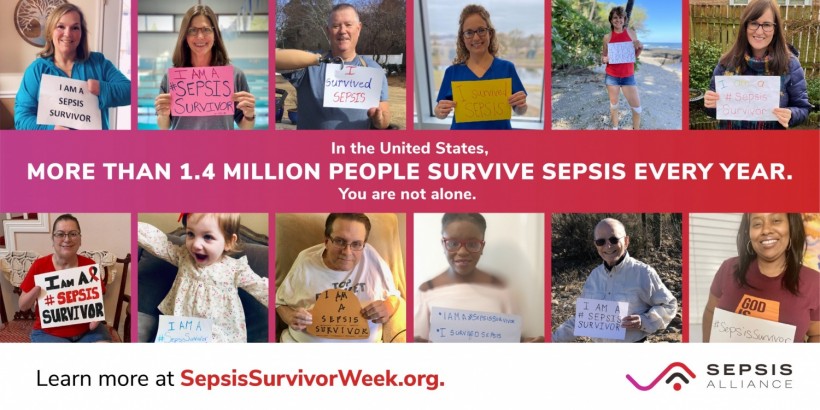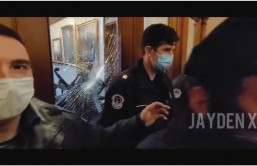
(Photo : Sepsis Alliance)
At least 1.7 million adults in the United States develop sepsis every year.
It's being called a "silent killer" in the United States.
At least 1.7 million adults in the country develop sepsis and 270,000 die from it each year, according to federal officials. Despite those alarming statistics, many Americans have never heard of it, and doctors sometimes lack the information to help them diagnose it.
"Doctors are not provided with enough information to help them to diagnose sepsis," Dr Steven Simpson, Chair of the Sepsis Alliance, told the Daily Mail for a piece published Sunday.
His group is now calling for urgent action on the issue.
Sepsis occurs when the body's immune response to an infection causes widespread, uncontrolled inflammation.
When germs get into a person's body, they can cause an infection. If that infection is not stopped, it can cause sepsis. Bacterial infections cause most cases of sepsis, according to the U.S. Centers for Disease Control and Prevention.
To manage this deadly condition, clinicians must promptly detect and treat the bacteria responsible for the initial infection, according to the Weil Institute at the University of Michigan.
Current methods of identifying these pathogens are time-intensive and limited in what they can detect. This can lead to delays in diagnosis and, subsequently, worsening patient outcomes.
"We urgently need diagnostics that can quickly detect and identify pathogens and help us prescribe the right drug for the right bug in sepsis," said Dr. J. Scott VanEpps, an Associate Director of the Weil Institute and Assistant Professor of Emergency Medicine.
Pathogen detection methods can take up to 48 hours for analysis and many hospitals reportedly do not have sepsis protocols.
One in three patients who dies in a U.S. hospital has sepsis, and most of them develop the infection or sepsis outside of the hospital, according to the CDC.
Those who survive can struggle to recover, and even lose fingers, toes or limbs from the infection.
"Sepsis is the silent killer," survivor Jackie Duda told the Daily Mail. "We're losing so many people to sepsis, and so many of us are affected by it every year in the U.S."









